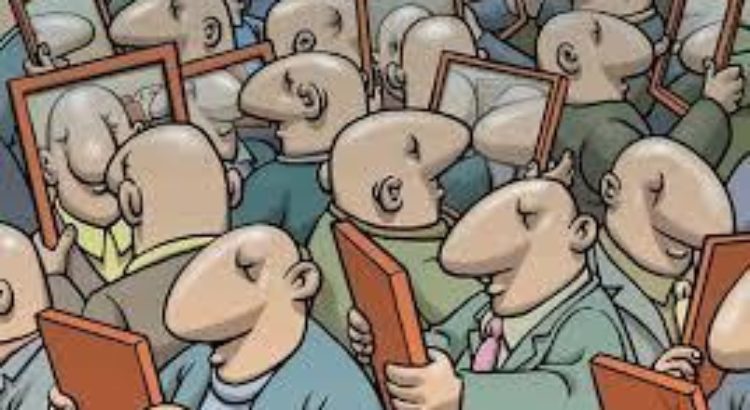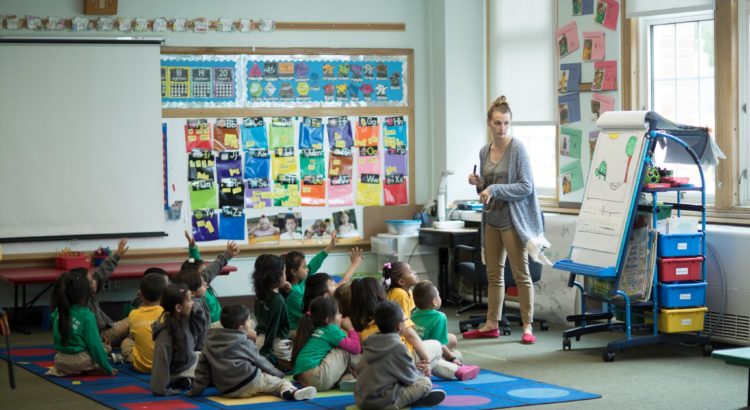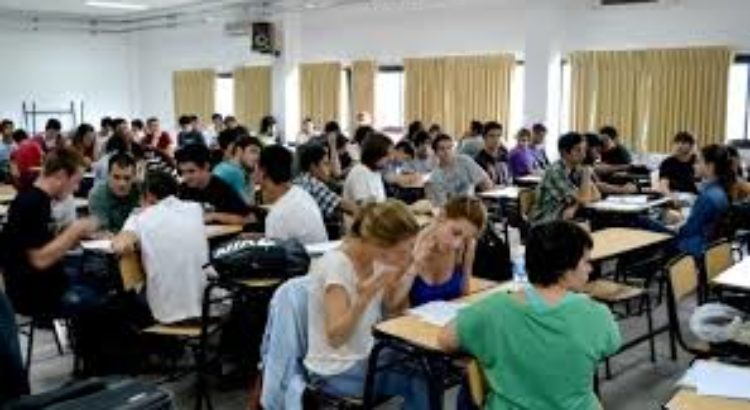Por: Saray Marqués
Save the Children lanza su campaña ‘Rompo el silencio’ para denunciar los abusos sexuales en la infancia y recalca que la educación afectivo-sexual como materia obligatoria en la enseñanza reglada es una poderosa arma para combatirlos.
En la estela del #Metoo, coincidiendo con su primer aniversario, Save the Children ha lanzado su campaña Rompo el silencio para visibilizar los abusos sexuales en la infancia.
La ONG recuerda que también hace ahora un año se aprobaba por mayoría en el Pleno del Congreso una Proposición no de Ley para que el Gobierno se comprometiera a luchar contra la violencia contra los niños con una norma a imagen de la Ley Orgánica de Medidas de Protección Integral contra la Violencia de Género de 2004. Una norma que Naciones Unidas viene tiempo reclamando (la última vez fue en enero), y cuyo anteproyecto el Gobierno de Pedro Sánchez se ha comprometido a tener listo en el segundo trimestre de 2019. Muy tarde, para las organizaciones de infancia, que consideran que para que la ley se materialice su fecha de entrada en las Cortes debería ser enero de 2019.
Esta ley contribuiría a mitigar, entre otros, los abusos sexuales en la infancia. Una realidad de la que sabemos, gracias a Save the Children, que representa una de cada dos denuncias por abusos sexuales. Y eso cuando se denuncia, porque sólo un 155 de las víctimas se atreven a dar el paso. Las que lo hacen tienen pocas probabilidades de que su caso llegue a juicio oral: sólo tres de cada 10 lo logran.
La ONG evidenciaba en su informe de 2017 la desprotección de los menores víctimas de abusos: en las sentencias analizadas, sólo en un 15% en que la víctima se lo contó a un profesor hubo una notificación a las autoridades competentes.
Save the Children pone el foco en la educación y considera que la futura ley debe incidir tanto la formación de los docentes en violencia y protección de la infancia como en la educación afectivo-sexual en la enseñanza reglada.
Para todos y cuanto antes
Carmela del Moral, analista jurídica de derechos de la infancia en Save the Children, defiende que esta última ha de ser obligatoria: “Si no educamos de una forma reglada habrá niños y niñas que estarán recibiendo esa educación por medios no adecuados. En los casos más suaves, por rumores de patio del colegio. En los tiempos que corren, sin embargo, la principal fuente será el porno en internet. En un mundo sin barreras, sin límites, esos niños y niñas estarán accediendo desde edades muy tempranas a contenidos marcados por fantasías machistas y violentas y acercándose a referentes de la cultura de la violación, que justifica y hace romántica la violencia sexual, que hipersexualiza a las niñas y adolescentes. Los menores necesitan filtros, herramientas para interpretar. No pueden normalizar conductas que son violencia sexual y no relaciones basadas en el placer, en la igualdad y en la libertad”, asevera.
Para Del Moral, cuanto antes se empiece a educar, mejor: “Desde luego, si no se han creado ya esos espacios de comunicación con los alumnos y alumnas, los hijos y las hijas, no es fácil hacerlo en la adolescencia, la edad en que más pudor tienen para hablar con adultos de estos temas”.
Le da la razón un estudio de la Liga Española de la Educación de hace cinco años. Preguntado un grupo de chicos y chicas de 14 a 18 años acerca de cómo obtenían información útil sobre sexualidad y cuidados de salud sexual, un 40,5% de ellos y un 25,4% de ellas mencionaron internet y un 17,2% de ellos y un 1,2% citaron expresamente el porno como fuente. Un 11,3% de ellos y un 13,4% dijeron haber recurrido a sus padres.
Aboga la experta por abordar desde que los niños son pequeños el conocimiento de su propio cuerpo, la idea de que son dueños de él, también de sus zonas más íntimas, de que pueden decir no, establecer límites, de que tienen derecho a no dar un beso, un abrazo, por ejemplo, la distinción entre las relaciones afectivas familiares, de amigos, románticas, sexuales: “La sexualidad forma parte de nuestra vida, y en educación no nos podemos limitar a la parte más biológica, al aparato reproductivo, a cómo evitar un embarazo o una enfermedad de transmisión sexual. Siendo importante, no puede ser lo único. No se puede dejar de lado todo lo que rodea al sexo, ni reducirlo a la mera penetración. Hay que hablar de afectividad, de la parte emocional… y no vale con una charla al año”.
Los chicos y chicas que mencionan la escuela como fuente se refieren a eso, a charlas, en ocasiones, promovidas por la asociación de padres y madres, en otras, por el profesorado más motivado. “No se puede dejar la educación afectivo-sexual en manos de la buena voluntad y las ganas de la comunidad educativa. Se debe perder el miedo a que figure como algo necesario, pues con ella lograremos niños y niñas más libre y adultos que esperemos que reviertan las tendencias de violencia sexual”, proclama Del Moral, que advierte de que estudios llevados a cabo en EEUU hablan de una prevalencia del abuso sexual hasta un 50% inferior en chicas que habían recibido educación afectivo-sexual: “Son más capaces de decir que no, de identificarlo y de hablar de lo que les ha pasado”.
Acompañamiento en la escuela y en casa
La ministra Isabel Celaá también se ha mostrado dispuesta a incluir la “educación emocional y sexual”, “la prevención de la violencia de género” y “los principios de diversidad y tolerancia” en los currículos escolares. Lo cierto es que estos aspectos desde la LOGSE se abordan de manera transversal. La LOE de 2006 insistió en este carácter, con un leve espacio propio, además, en la asignatura de Educación para la Ciudadanía. Y la Lomce de 2013, por su parte, se queda en generalidades, con objetivos para la ESO como: “Conocer y aceptar el funcionamiento del propio cuerpo y el de los otros, respetar las diferencias y afianzar los hábitos de cuidado y salud corporales”. Frente a esto, algunos expertos defienden una asignatura específica y obligatoria que amplíe el campo de conocimientos que aporta la escuela como espacio de aprendizaje.
Los jóvenes españoles no parecen preocupados por sus conocimientos sobre sexo. Un 78,7% los ven “totalmente adecuados”, según un estudio del Centro Reina Sofía sobre Adolescencia y Juventud de la FAD. Pero, al tiempo, un 62,2% está de acuerdo con que “los chicos tienen más necesidad de sexo que las chicas” y, cuando se les pregunta si a veces hay que aceptar tener sexo para no perjudicar la relación, el porcentaje entre quienes están de acuerdo y en desacuerdo está muy igualado.
“Sin experiencias previas, se normaliza lo que se ve. Se toman como referentes prácticas que no son habituales, que no son normalmente igualitarias ni en libertad, y que encierran fantasías de dominación, de violencia, de violación. Si los niños y las niñas consideran el sexo en grupo con una chica y todos ellos pasándose el turno como algo normal, tenemos un problema, pues van a adoptar papeles que no les corresponden”, prosigue Del Moral. “El filtro es importante, saber que el deseo, lo erótico, son constructos sociales y culturales. No puede ser que el único referente sea la normalización de cosas que no son habituales”, abunda.
Por ello, para ayudar a los padres a ser referentes, la ONG cuenta con sus Respuestas fáciles a preguntas difíciles. “Debemos perder el miedo a hablar de sexo. También en la escuela, con mensajes adaptados a cada edad. Se tiene la idea de que se va a romper su inocencia, de que se les agrede, cuando es todo lo contrario. Hay que ayudarles, acompañarles y enseñarles en su sexualidad”, concluye Del Moral.
El caso holandés
El ejemplo de Holanda es paradigmático. Allí, gracias a un acuerdo entre el Ministerio de Educación y la asociación Rutgers, la educación sexual es obligatoria desde primaria, y así consta en el currículo. La organización aboga por una educación sexual comprensiva para todos los niños y adolescentes “porque la sexualidad es parte de su desarrollo, porque necesitan el apoyo de adultos para crecer de forma saludable, porque los niños y niñas hacen preguntas y tienen derecho a ser informados, porque necesitan enmarcar sus sexualidades en un marco claro de valores y porque el apoyo de los padres es a menudo insuficiente (demasiado tardío, demasiado escaso)”.
Dentro del programa estatal, los niños a los 6 o 7 años -cuando empiezan a preguntar el significado de ciertos tacos con connotaciones sexuales-, son capaces de nombrar adecuadamente las partes del cuerpo, incluidos los genitales, y cuando llegan a los 11, están preparados para participar en debates acerca del sexo seguro o del abuso sexual, en los que se les interpela, por ejemplo, si es cierto que la sociedad mira con distintos ojos a un chico que mantiene muchas relaciones sexuales y a una chica que hace lo mismo. “Te aporta información que necesitas saber y te ayuda a definir tus límites, a diferenciar lo que de verdad quieres y lo que no quieres”, valora una alumna de secundaria holandesa en el vídeo que presenta el programa.
Holanda se jacta de ser uno de los países con tasas más bajas de embarazos adolescentes y de ETS. Es alto, en cambio, el porcentaje de adolescentes que usa anticonceptivo desde su primera relación y la califican de “deseada y divertida”. En la escuela se les habla de prevención, pero también de derechos, de respeto, de responsabilidad, de asertividad, de diversidad. El programa cuenta con formación para docentes y para padres para que se sientan más cómodos hablando de sexo, transmitiéndoles la idea de que aceptando el reto de iniciar una conversación sobre el tema están protegiendo a sus hijos, y extiende su colaboración a los centros de salud.
Mientras, en España…
Cuesta imaginar una situación similar en España, donde asociaciones como el Foro de la Familia o la Federación España Educa en Libertad (enemigas acérrimas de la asignatura de Educación para la Ciudadanía en su día) consideran este tipo de educación como adoctrinamiento o ideología de género y, al pensar en el consentimiento, piensan en el consentimiento de los padres para que los alumnos puedan acceder a estos contenidos en la escuela. La última vez que hicieron ruido fue el curso pasado, cuando la Consejería de Educación de la Región de Murcia impulsó la iniciativa de educación afectivo-sexual para primaria, secundaria, bachillerato y FP Básica en colaboración con la asociación No te prives.
José Joaquín Álvarez, profesor en el IES Duque de Rivas en Rivas Vaciamadrid, se ha convertido en un referente con la tutoría de atención a la diversidad sexual y de género que coordina en el centro desde hace 13 cursos. Asegura que la sensibilidad ha aumentado en este tiempo, pero lamenta “la falta de voluntad política para erradicar la lacra de la homofobia en entornos dominados por el miedo y el prejuicio social”.
También para él, que con la tutoría, incluida en el proyecto educativo de centro, pretende “promover la convivencia en el entorno escolar desde el respeto a los hechos diferenciales” o “completar las carencias formativas en educación afectivo-sexual”, “es imprescindible que la educación sexual llegue a todo el alumnado y se introduzca con entera naturalidad en el currículo escolar desde etapas muy tempranas, adaptándola al nivel madurativo de los estudiantes”. “Estos deben comprender la importancia de la sexualidad en el proceso de construcción de la personalidad desde su dimensión afectiva y plural. La educación se define por su poder transformador. El sistema educativo debe proporcionar los recursos y herramientas necesarios para erradicar los comportamientos sexistas y homófobos, con una formación orientada a potenciar relaciones igualitarias en un contexto de expresión libre de afectos, con un respeto exquisito a los hechos diferenciales”, concluye Álvarez, que insiste en la necesidad imperiosa de adecuar los planes formativos de la carrera docente.
Fuente: http://eldiariodelaeducacion.com/blog/2018/10/09/educacion-afectivo-sexual-freno-ante-los-abusos-y-violaciones/













 Users Today : 12
Users Today : 12 Total Users : 35460673
Total Users : 35460673 Views Today : 37
Views Today : 37 Total views : 3419782
Total views : 3419782